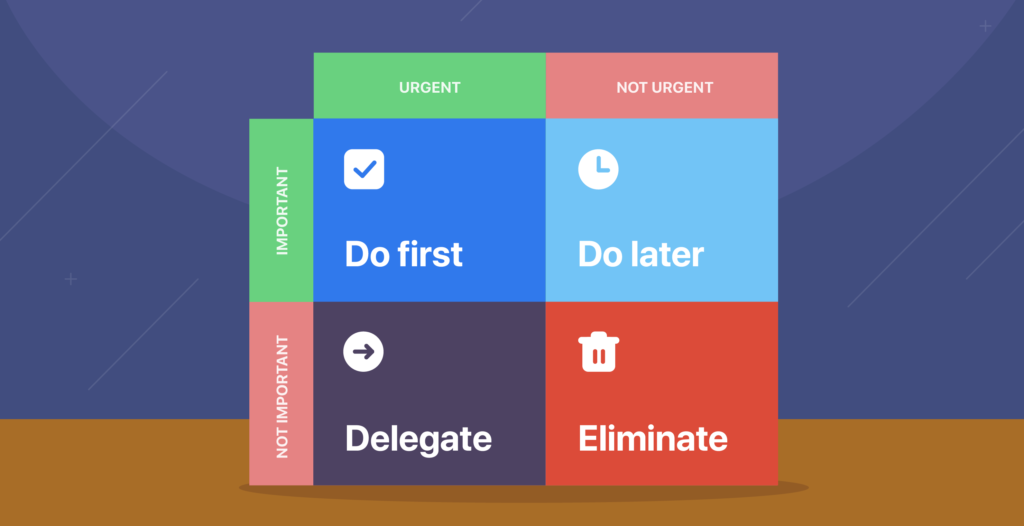
A few months back, I hit a breaking point. It went beyond the usual procrastination. My focus was completely shattered. I couldn’t stay engaged in anything for more than a few minutes—even activities I enjoyed, like reading a great book or watching a movie. It got to the point where even a YouTube video couldn’t hold my attention. That’s when I realized something needed to change. So, I made a shift. I went from constantly feeling like I was barely keeping up to finally having more than enough time for everything I needed to do—and enough to relax, too. The surprising part? It all began with one small change.
Change your space, change your mindset!

Let’s talk about how your environment impacts your focus. One of the most effective—and surprisingly simple—ways to reclaim your concentration is by changing your surroundings. It may sound too straightforward to be effective, but it truly makes a difference.
The mere presence of your phone can disrupt your ability to concentrate. Just having it within reach acts like a distraction trigger, subtly pulling at your attention even when you’re not actively using it. It’s as if this tiny device is a mental distraction bomb, ready to go off at any moment.
Creating a space that’s free of these types of distractions can help you stay fully engaged in what you’re doing. Try setting up a dedicated work area, removing any items that tend to draw your attention away from your task, and setting your phone to ‘Do Not Disturb’ or placing it in another room entirely. This small change in your environment can have a profound impact on your ability to stay focused, making it easier to complete your work, dive into that book, or enjoy a movie without constantly drifting away.
Stay organized with a to-do list!

Using a to-do list can be a powerful way to keep your priorities organized. If you’re juggling multiple responsibilities—personal and professional—it can sometimes feel overwhelming. A to-do list helps you stay on top of these demands by creating a clear structure for what needs your attention most.
The benefits are twofold: first, it gives you an immediate sense of accomplishment as you check items off, and second, it acts as a quick reference when you feel distracted. If you’re unsure whether you’re staying on track, just glance at your list to realign yourself with what’s truly important.
When you decide to work with a to-do list, aim to keep it simple and achievable. Overloading your list can backfire; it’s better to have a realistic 3-5 tasks that you can complete than an endless list that leaves you feeling discouraged.
Try noise-cancelling headphones!

Disruptive noise can be one of the biggest hurdles to focus on, whether you’re working from home or a bustling office. From nearby conversations to background music or construction sounds, external noise can quickly derail your concentration.
If you’re sensitive to sound distractions, investing in quality noise-cancelling headphones could make all the difference. Even if you prefer silence, these headphones are effective at blocking out background sounds, creating a quiet environment for you to focus.
An added benefit? Wearing headphones can signal to others that you’re focused and don’t want to be interrupted. This simple change can help you preserve your attention and maintain productivity, making a huge impact with minimal effort.
Structure Your Tasks Around a Daily Goal!

Boosting productivity is just the starting point! By organizing your tasks around a central daily goal, you’re aligning each action with a clear objective. This approach keeps you focused on what’s truly important, reducing distractions and helping you make steady progress toward what matters most.
Here are some added benefits of batching tasks:
- Minimizes context switching: Switching between different types of tasks forces your brain to reset, which can be mentally draining. Frequent context switching raises cortisol (the stress hormone), leaving you feeling exhausted and unfocused.
- Encourages deep work: Task batching helps you reach a state of focused, distraction-free work, allowing your mind to operate at peak performance. This enables faster learning, efficient problem-solving, and higher-quality output.
- Reduces decision fatigue: Constant decision-making is mentally tiring. By grouping smaller decisions into larger chunks, you minimize the number of choices you face, conserving energy and mental clarity for more critical tasks.
- Enhances goal visualization: When tasks are batched around a single purpose, you gain a clear view of each step required to achieve your goal. This visualization helps keep you on track and aligned with your target.
- Reduces burnout: Excessive multitasking can lead to physical and emotional exhaustion, known as burnout. Organizing your day around a main objective can ease the mental load, allowing you to accomplish more without feeling drained.
Organize your workspace for peak productivity!

A messy or disorganized workspace can be a major obstacle to productivity. The reason? Visual clutter can actually compete for your attention, making it harder to stay focused on the task at hand.
When there are too many visual stimuli in your line of sight, they compete with each other, forcing your brain to work harder to focus. Instead of zeroing in on what you’re trying to accomplish, you’re subconsciously processing everything around you, which can drain your energy and diminish your concentration.
However, as you declutter, beware of falling into the “productive procrastination” trap. Often, when faced with important tasks, it’s tempting to dive into a deep-cleaning mission—clearing out drawers, reorganizing shelves, and tackling every piece of “stuff” on your desk. Although this feels productive, it can often be a sneaky way of avoiding your real work.
To avoid getting side-tracked by cleaning, set a timer. Spend a few minutes clearing only what’s necessary, focusing on removing immediate distractions without letting it derail your workflow. With a clean, organized desk, you’re not only optimizing your environment but also setting yourself up for a more focused and efficient work session.
The cost of saying yes to everything and how to prevent it!

In an effort to meet everyone’s expectations and keep others happy, we often end up saying “yes” to more than we can realistically manage. This overcommitting might seem noble at first, but it usually leads to feeling perpetually overwhelmed, constantly chasing deadlines, and rarely feeling fully on top of things.
Saying yes to every request or opportunity isn’t a sign of strength or accomplishment; in fact, it can quickly spiral into burnout. When you take on too much, the quality of your work and your ability to truly engage with each task diminish. You’re left feeling spread thin, which makes it harder to find satisfaction in what you’re doing.
To maintain a healthier pace and a better balance, it’s crucial to recognize your limits and to be comfortable setting boundaries. When you make your well-being a priority, you’re better equipped to serve others effectively without sacrificing your own peace of mind. As the saying goes, “If you don’t prioritize your life, someone else will.” This rings true because when you allow every request to dictate your day, you lose sight of your own goals and purpose.
By committing to fewer tasks and focusing on doing them well, you can reclaim control over your time and energy. Rather than constantly feeling rushed, you’ll experience the satisfaction that comes from completing tasks with care and intention. Learning to say no when you need to isn’t a weakness; it’s an essential step in protecting your mental and physical health.
So, remind yourself that it’s okay to say no. Sometimes, that “no” can be the boundary that safeguards your well-being, giving you the space to breathe, reflect, and focus on what truly matters. In the end, prioritizing fewer commitments allows you to show up fully in each area of your life, bringing genuine presence and quality to everything you do.
Final thoughts!
Whether it’s procrastination, self-doubt, neglecting self-care, overcommitting, or comparing yourself to others, each of these habits subtly hinders our progress and makes life feel like a never-ending race we’re constantly losing. The first step to change is recognizing the habits that are holding you back. Once you identify them, you can start making small, intentional adjustments that will gradually move you closer to your goals. Remember, progress is a journey, not a sprint. It won’t happen overnight, but with consistent effort and patience, you’ll begin to see the positive shifts in your life. So, start today—release these habits and create the space you need to grow and thrive. Life isn’t about keeping up with others; it’s about moving forward at your own pace, embracing your unique path, and finding fulfillment in your journey.